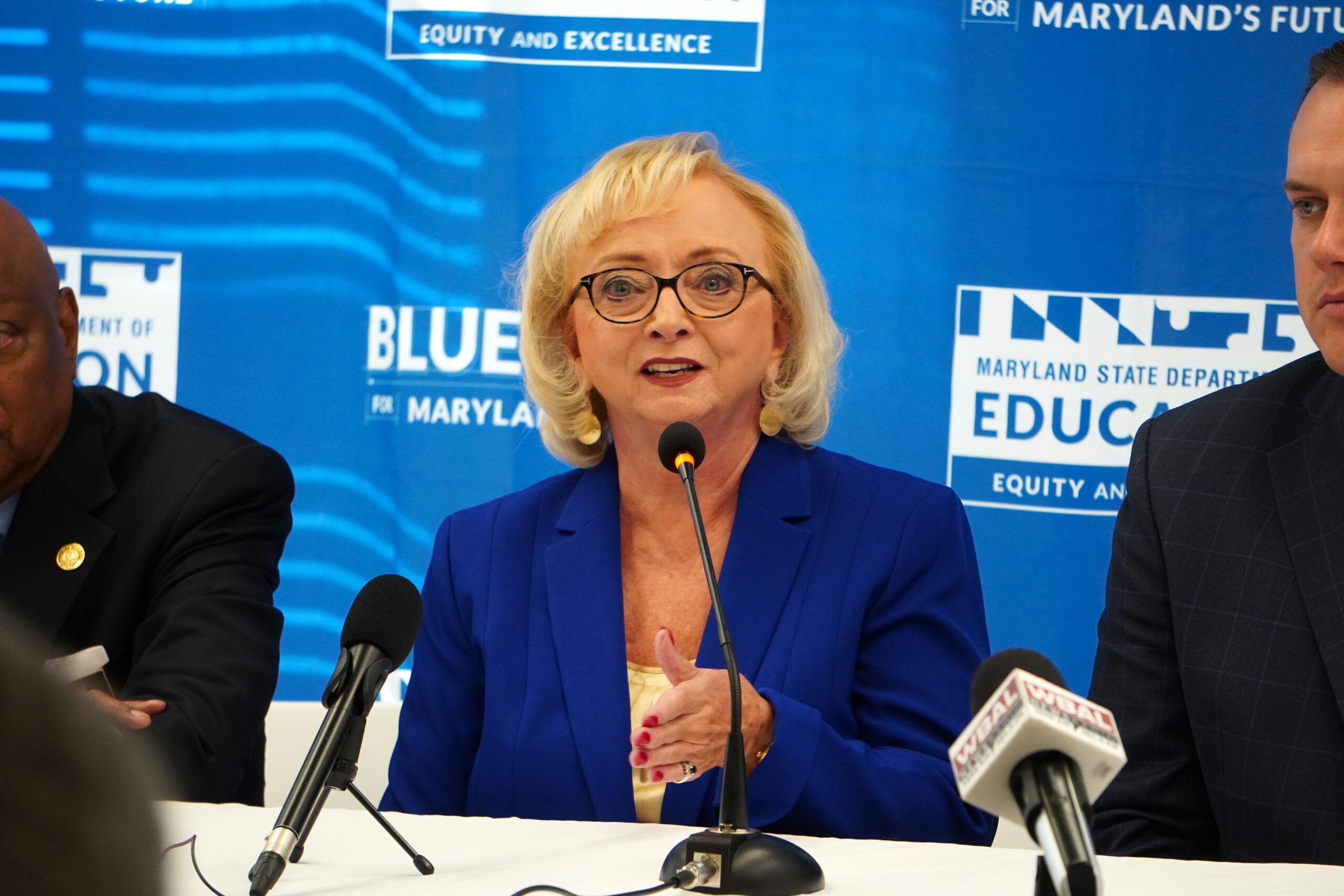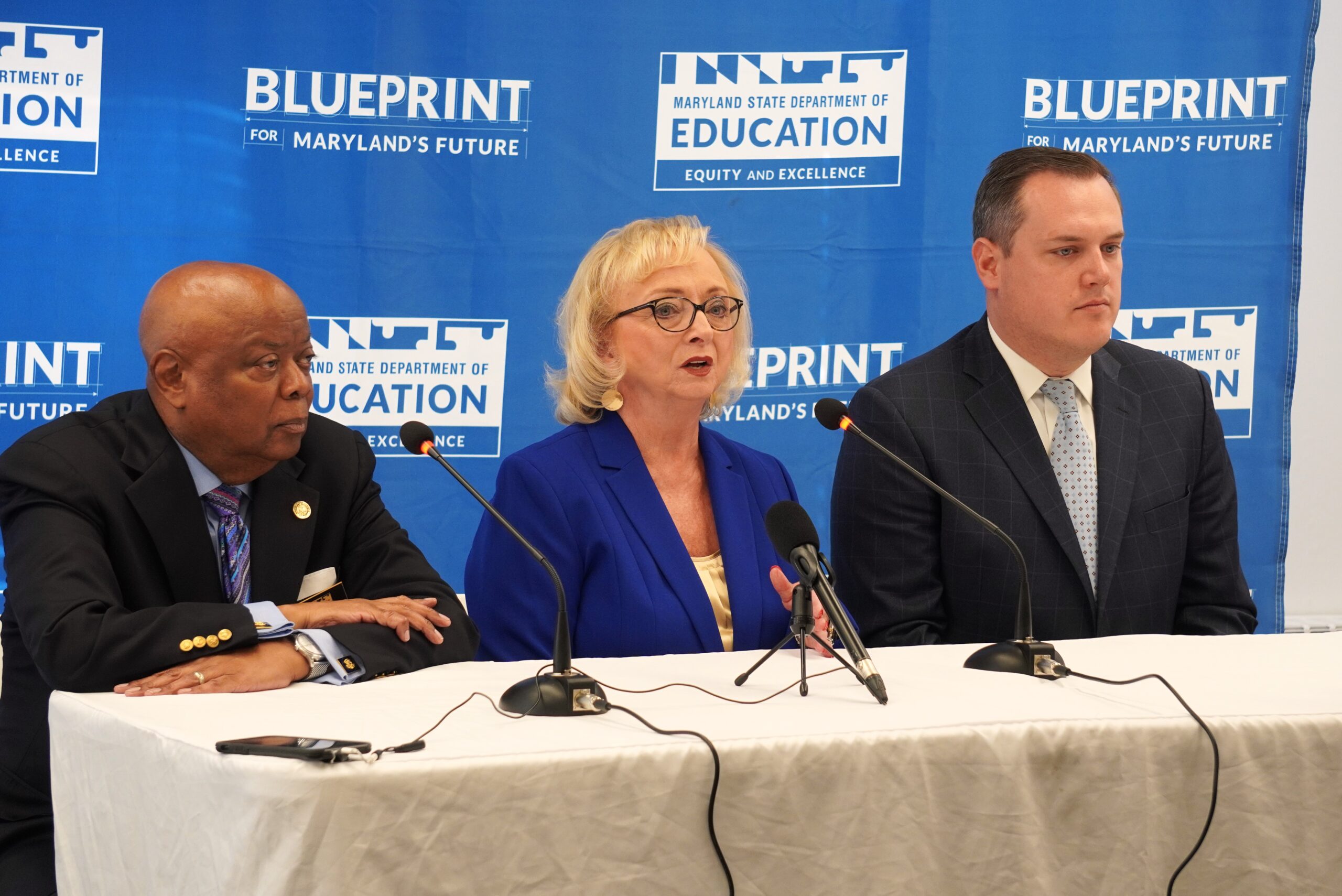
Chances are that, at some point growing up, you enjoyed reading “How the Grinch Stole Christmas!” or “A Christmas Carol.” You’re lucky. Around 60 percent of all Maryland children will probably never have that pleasure because they’ve never been taught to read proficiently.
The gift that most of our children desperately need is literacy. In conscience, it should not be thought of as a gift but a sacred civil right. It’s the magic carpet not just to success in school but to meaningful participation in the world of work and civic life.
“Once you learn to read, you will be forever free,” Frederick Douglass wrote, adding “To deny education to any people is one of the greatest crimes against human nature.”
Why do we as a state and nation commit the crime of illiteracy?
It’s not because we don’t recognize the all-importance of reading to the life chances of our children, especially those who are poor and of color. And it’s not because we don’t know how to teach virtually all children to become proficient readers. We are even nearing the end of the infamous reading wars; the science of reading, including interventions for struggling learners, has finally begun to dominate the debate.
What then stands in the way? A big part of the explanation is found in the title of an article by education analyst Andrew Rotherham: “Phonics. Whole Language. Balanced Literacy. The Problem Isn’t That We Don’t Know How to teach Reading — It’s Politics.”
Who then are the political grinches who are stealing literacy from our children? Not intentionally of course. Educators and elected officials care deeply about each child’s right to read, but are not doing as much as they could to bestow it.
That’s sadly true in Maryland, starting with the Maryland State Department of Education. State Superintendent Mohammed Choudhury, from his first day in office, has commendably proclaimed early literacy as a top priority. Yet, that was 18 months ago and — while offering incentive funding to local districts to pursue the science of reading — he has not produced a comprehensive literacy plan.
As spelled out in the 2020 Council of Chief State School Officers report “A Nation of Readers: How state chiefs can help every child learn to read.” MSDE should be doing more to provide regulatory guidance on evidence-based best practices and technical assistance, to monitor implementation, to collect and analyze data, and to evaluate outcomes.
Mr. Choudhury’s administration keeps saying that a plan is being developed but offers no explanation for its prolonged absence or timetable. What’s more, before Mr. Choudhury took office, many stakeholders (including me) were part of a MSDE workgroup on early literacy that was making considerable progress. But he terminated the workgroup, again without explanation.
A positive sign is that the Blueprint for Maryland’s Future singles out the need for interventions for struggling readers in grades K-3. However, the funding is a small fraction of what is required. And, so far, the Blueprint Accountability and Implementation Board has not worked out with MSDE a detailed, comprehensive literacy plan.
If the AIB, MSDE, governor and General Assembly resolve to give the gift of reading, the political shopping can be easy. Many states are far ahead in their legislative efforts to create a right to literacy starting in the early grades. At best, Maryland is in the middle of the pack, according to a national think tank’s 2021 state-by-state analysis of K-3 reading policies. Our state is conspicuously absent on overviews of model state actions.
In fact, Maryland’s Ready to Read Act of 2019 pales in comparison to the scope of comprehensive laws in other states. Former House Majority Leader Eric Luedtke (D-Montgomery), now Gov.-elect Wes Moore’s chief legislative officer and a former teacher and leading sponsor of the Ready to Read Act, told a public forum that it “needs strengthening.”
Hopefully, the Moore administration will sponsor legislation, based on models from other states, that makes explicit the right to learn to read and fills the gaps in the Ready to Read Act. Its provisions should embody what the science of reading teaches about identification, interventions, curricula and teacher preparation.
Such legislation and an AIB/MSDE comprehensive literacy plan should be urgent resolutions for the new year. So should immediate additional funding for interventions for struggling readers. Of course, the governor-elect and the General Assembly are besieged with requests, but could there be a higher priority — a better way to celebrate the season of renewal — than seeking to release our schoolchildren from the prison of illiteracy?




 Creative Commons Attribution
Creative Commons Attribution